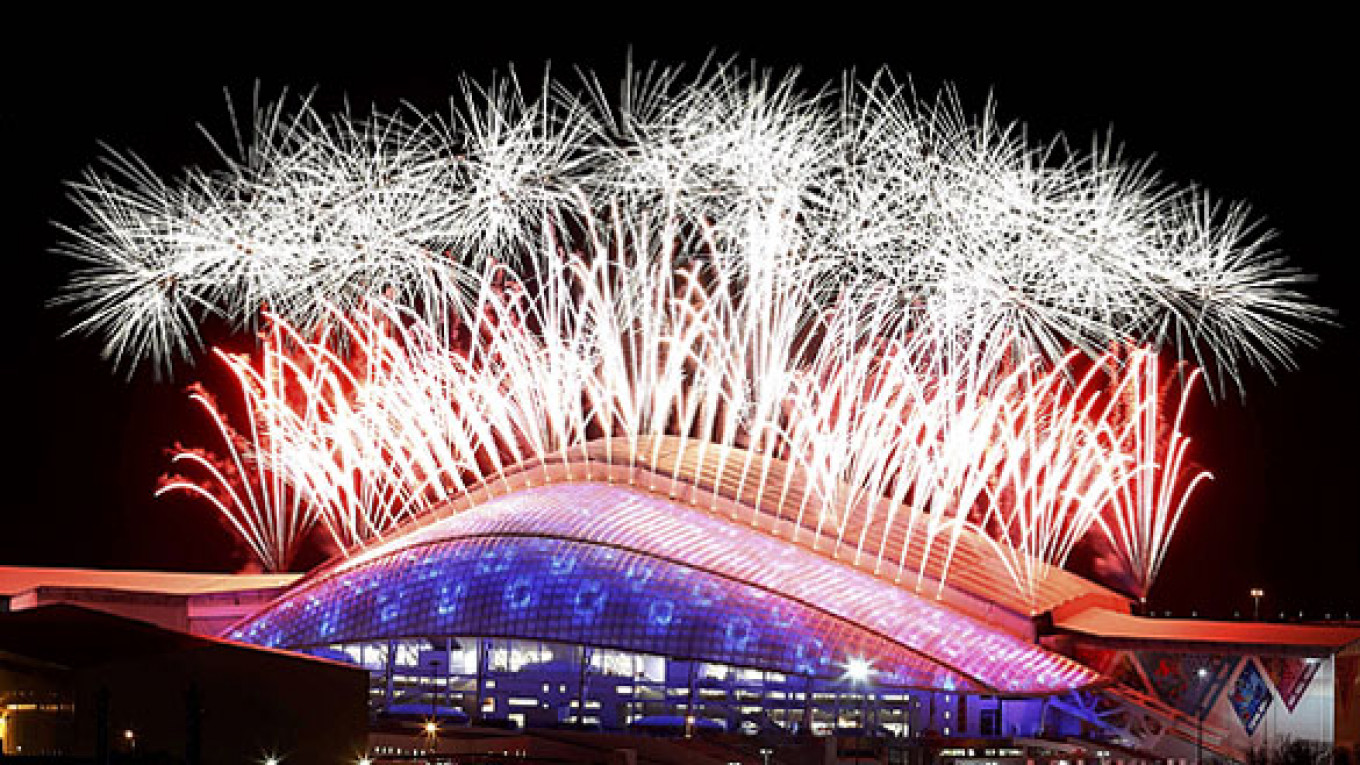SOCHI — When the flame went out in Russia's Sochi on Sunday, the 2014 Winter Games went down in history as the most expensive Olympics, with an overall price tag estimated at more than $50 billion.
Never had a Winter or Summer Olympics — which are several times the size and scope of the snow-and-ice spectacle — soaked up so much spending, although some Russian officials dispute the reported costs.
Organizers also stress that the aim has been to build infrastructure that will service sport and tourism for years to come.
Sochi was also the first Winter Games host to create an Olympic park littered with gleaming new venues. Some will remain, some will move, but whether they will ever bring a return on investment remains to be seen.
"We hope that Russia will create the blueprint and new standards in efficiency and compactness of the Games," said Games chief Dmitry Chernyshenko last week, according to Reuters.
"It will be difficult to repeat because we had the natural advantage of literally not having anything here and built everything from scratch."
"Difficult" would seem an understatement, with the cost of Sochi already sending shivers down potential candidates' spines.
For the 2022 Winter Olympics, Switzerland and Germany held referendums to decide whether to bid, with voters emphatically turning down any such plans. Concerns over costs and the impact on the environment were the two main points of opposition.
Sweden's Stockholm submitted an official bid to host the 2022 Winter Olympics in November last year but pulled out in January, sensing it had neither the financial strength nor the public support to run a seven-year project that could bring more drawbacks than benefits.
Neighbouring Norway is still in the running with Oslo, but its bid is not universally popular, with more than 50 percent of the country's population opposed to it in a recent poll.
Ukraine's Lviv is another candidate, but its campaign has been severely damaged — possibly beyond repair — by political unrest in the country and the cost of staging the Olympics.
China's Beijing has also thrown its hat into the ring, but it is equally unlikely to stage the multi-billion dollar extravaganza with the Chinese capital having held the Summer Olympics as recently as 2008.
The 2018 Winter Olympics will be held in South Korea's Pyeongchang and the 2020 Summer Games have gone to Japan's Tokyo, making Beijing an outsider in the race for 2022 with three Asian Olympics in a row a distant possibility.
Krakow's bid for the first Polish Olympics has been hampered by some events having to be staged in Slovakia. The International Olympic Committee is hesitant to award the Games to two countries, fearful that it could dilute the atmosphere and impact of the event.
As things stand, Kazakhstan's Almaty, which has proposed what it says is a cost-responsible project with some three quarters of the venues already in place, seems to be the candidate with a clear advantage.
"Those costs in Sochi are enormous and a bad example for future candidates," said International Skiing Federation president Gian-Franco Kasper, according to Reuters. "Most nations cannot afford it. Switzerland, France could never afford such amounts."
The IOC, under new president Thomas Bach, is trying to strike the right balance between size, impact and cost for future Olympics, eager to reduce the financial burden on cities from the bidding stage.
"We have to go back to basics," outgoing IOC marketing chief Gerhard Heiberg told Reuters. "We need a competition where the cities will not spend that much money.
"If we continue what we see now, then a lot of countries will stay away from Winter Olympics," said Heiberg, who himself is involved in the Oslo bid.
With Brazil protests over government spending ahead of both the 2014 World Cup and 2016 Rio de Janeiro Summer Games — highlighting the need for public support and responsible investment on mega sports events — it is highly unlikely that the Sochi "blueprint" will be repeated any time soon.
It is hard to argue against a local population that demands hospitals and schools ahead of stadiums and indoor arenas.
When it chose Sochi in 2007, the IOC made the most of Russia's desire to invest in and to stake its international prestige on such an event, and as a result it has kept athletes and other stakeholders happy.
Now, however, it looks ready to moved on to smaller, more cost-efficient Games to keep the world's biggest winter and summer multi-sports event relevant and attractive.
A Message from The Moscow Times:
Dear readers,
We are facing unprecedented challenges. Russia's Prosecutor General's Office has designated The Moscow Times as an "undesirable" organization, criminalizing our work and putting our staff at risk of prosecution. This follows our earlier unjust labeling as a "foreign agent."
These actions are direct attempts to silence independent journalism in Russia. The authorities claim our work "discredits the decisions of the Russian leadership." We see things differently: we strive to provide accurate, unbiased reporting on Russia.
We, the journalists of The Moscow Times, refuse to be silenced. But to continue our work, we need your help.
Your support, no matter how small, makes a world of difference. If you can, please support us monthly starting from just $2. It's quick to set up, and every contribution makes a significant impact.
By supporting The Moscow Times, you're defending open, independent journalism in the face of repression. Thank you for standing with us.
Remind me later.






